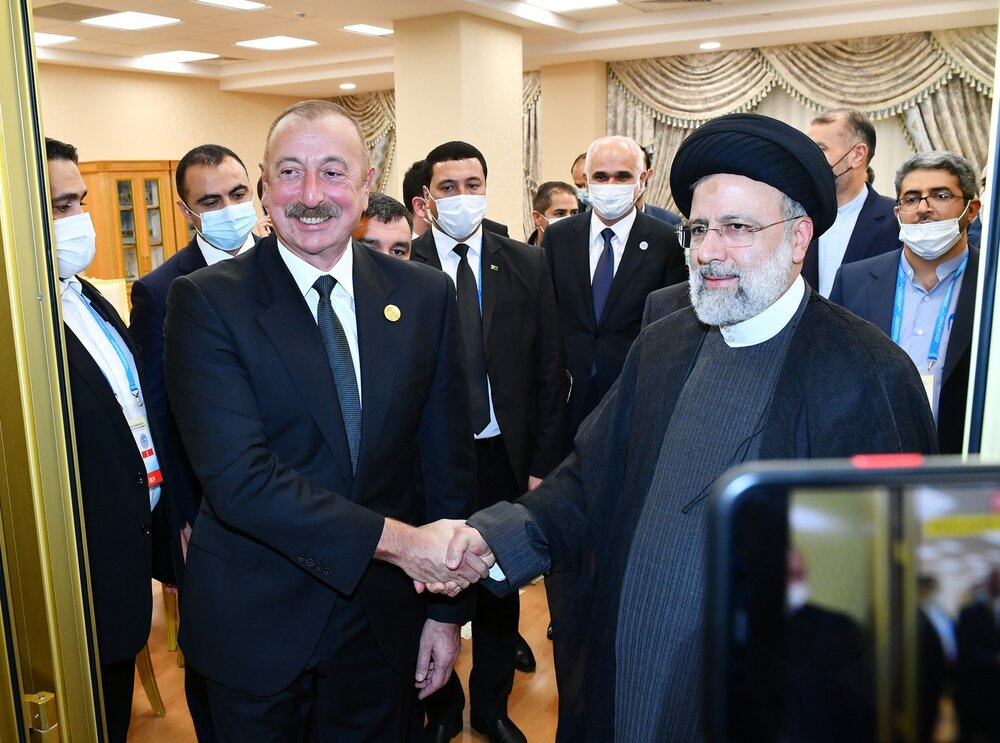

TEHRAN — Director of the Office for the Study and Compilation of Iranian History has praised the policy of the new administration of Ebrahim Raisi toward neighboring countries.
“The doctrine of the current administration towards the countries of the region is such that one can expect effective achievements in the region,” Abbas Salimi Namin said in an interview with IRNA on Tuesday, citing the tripartite gas agreement between Turkmenistan, Iran and the Republic of Azerbaijan as an example.
Salimi Namin added, “Any kind of relationship with neighboring countries, because it is cost-effective and creates security for the parties are effective and helpful. However, sometimes countries lose or neglect this lucrative opportunity while the most stable and effective relationship is the relationship between neighboring countries, and if a country can make good use of this gift, it will best serve the national interests.”
Specifically, in dealing with the Republic of Azerbaijan, he said, Iran considers this South Caucasian country “very close” to itself as there is centuries-old affinities between the two countries.
Iran has a special bond with the Republic of Azerbaijan and this policy can make the bond between the two countries “better and stronger”, the analyst said.
Salimi Namin said that President Raisi has acted successfully in improving relations with neighboring countries in the short period of his presidency, highlighting that in connection with the Republic of Azerbaijan, relations are rooted in the goodwill of the president, and the tripartite gas contract will definitely have benefits for Iran, the Republic of Azerbaijan and Turkmenistan.
He added, “During the past month, we had quite serious and expert talks with these two countries on the issue of gas transportation from Turkmenistan, which fortunately led to the signing of this tripartite agreement, in which we annually receive about 1.5 to 2 billion cubic meters of gas from Turkmenistan in the Sarakhs region and deliver it to the Republic of Azerbaijan from Astara.”
The political analyst pointed out that this agreement is the product of communications that are important in today’s world.
Such interactions can clear up misunderstandings and thwart the efforts of “sedition centers” in the region.
The analyst claimed the Rouhani administration ignored the potential of regional countries and “this caused a lot of damage to national interests.”
“But,” he said, “in the current situation, the doctrine of the current administration towards the countries in the region is such that we can expect impressive results.”
“Empty promises of the West”
He added, “The problem with the previous administration was that it was happy with the empty promises of the West and therefore did not see the need to interact with countries such as the Republic of Azerbaijan and so on.”
In the end, Salimi Namin said despite certain differences “the Islamic Republic has a ‘benevolent’ view of relations, and for this reason, the decision of the 13th administration is to make efforts to establish relations in line with the interests of the sides so that neighbors can, in addition to resolving disputes, work closely together.”
Under the gas deal, 1.5 to 2 billion cubic meters of gas will be transported annually; Turkmenistan will supply Iran with gas and then Iran will separately deliver an equivalent amount of gas to Azerbaijan.
The deal was signed after the end of a bilateral meeting between Iranian President Ebrahim Raisi and Azeri President Ilham Aliyev on the sidelines of the 13th ECO summit in the Turkmen capital.
“From now on, Iranian-Azerbaijani relations will develop in all areas,” Aliyev told reporters following the signing, according to eurasianet. “Our peoples are fraternal peoples, our countries are fraternal countries, and the issues discussed today show again that Iranian-Azerbaijani relations are at a very high level.”
For his part, Raisi said, “Our relations with the Republic of Azerbaijan are not only neighborly, they are the relations of our hearts. The hearts of the peoples of the two countries beat together.”
Talking to reporters, Raisi added, “We must never allow others to interfere in our relations. We must resolve our own problems, work together to advance our relations and deepen mutually beneficial cooperation. Experience so far shows that when we discuss our issues ourselves, we manage to resolve many of them.”
Experts believe that the implementation of the deal could encourage other countries in the region to ink similar deals and to use the Islamic Republic’s capacities in this regard.
Having the largest high-pressure gas pipeline network after Russia, Iran can play a key role in transferring gas from east to west of Iran and to the neighboring countries such as Azerbaijan.
The deal is also a big step for Iran as it would ensure stable gas supply to the country’s northeastern regions which are far away from the sources of natural gas in the country.
Iran has major natural gas fields in the south but has imported gas from Turkmenistan since 1997 for distribution in its northern provinces, especially during the winter.
Related posts:
Views: 0
 RSS Feed
RSS Feed

















 December 2nd, 2021
December 2nd, 2021  Awake Goy
Awake Goy  Posted in
Posted in  Tags:
Tags: 
















